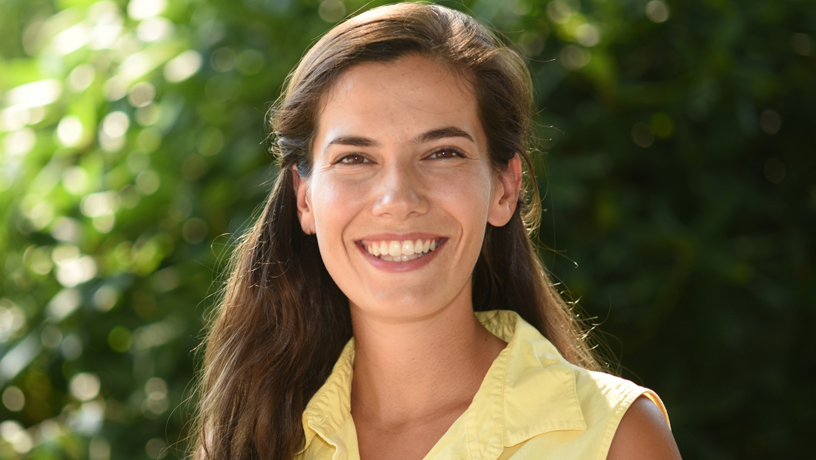Fulbright Winner to Embark on Indonesian Odyssey
Fulbright Scholar Stephanie O’Gara BS’16 will travel to Indonesia to study how to produce environmentally friendly biofuels.
For Stephanie O’Gara BS’16, who recently received a Fulbright research grant to work in Indonesia exploring how renewable energy might be harvested from biomass waste, engineering is the key to solving the world’s greatest challenges.
“As an engineer, there are no limits,” O’Gara says, “from combating climate change on a global scale to fighting bacteria with nanotechnology.”
This fall she will travel to the Pacific island nation, which consists of over 17,000 islands, with people who speak more than 700 languages, to study how Indonesia’s bustling agricultural sector can use leftover biological matter from harvesting crops to produce biofuels that are less environmentally harmful than traditional sources of energy. The mechanical engineering graduate will spend a year conducting research and participating in an extensive cultural exchange as part of the prestigious Fulbright program, which is sponsored by the U.S. government to promote international partnerships that address shared needs.
“Indonesia has a diverse and vibrant agricultural sector with unknown potential,” O’Gara says. “With a better understanding of this biomass waste, Indonesia’s agricultural industries could decrease their carbon footprint and meet the country’s growing energy needs.”

A native of Rehoboth, MA, a small town outside Providence, RI, she was inspired to pursue a STEM career by her passion for sustainability and by her mother, a high school chemistry teacher. O’Gara chose Columbia Engineering for the school’s collaborative, interdisciplinary approach that, she says, encourages engineers to “think globally to solve global problems.”
During her time at SEAS, she worked with Professor Y. Lawrence Yao and colleagues at Columbia Engineering’s Advanced Manufacturing Laboratory on two projects, measuring the corrosion resistance of different metals after laser shock peening and testing scribe quality using beam shaping. Among the highlights of her lab work was co-authoring an article on laser scribing solar cells in International Congress on Applications of Lasers and Electro-Optics.
Professors Yao, Jeffrey W. Kysar, and Vijay Modi were some of O’Gara’s biggest influences at Columbia Engineering, she says, along with Senior Lecturer in Discipline Fred Stolfi, instructor Matt Sisul, and student colleagues at both the graduate and undergraduate levels.
For her senior design project, O’Gara collaborated with a team of fellow mechanical engineering seniors to develop a working prototype they hoped would help promote positive social change. Over months of fine-tuning their concepts and designs, the team created an automated Braille tutor that teaches users how to read and write in Braille, the form of written language for visually-impaired people in which characters are represented by raised dots.
Outside the lab, O’Gara is an avid swimmer passionate about writing, politics, family, and diverse cuisines. Looking ahead, beyond her year in Indonesia, O’Gara dreams of perhaps becoming an engineering professor and helping to inspire future generations of problem-solvers.
“I’ve been able to work with brilliant engineers and like-minded students,” she says. “I’m going to miss all the teamwork at SEAS, and the long nights learning from each other over lots of coffee!”
